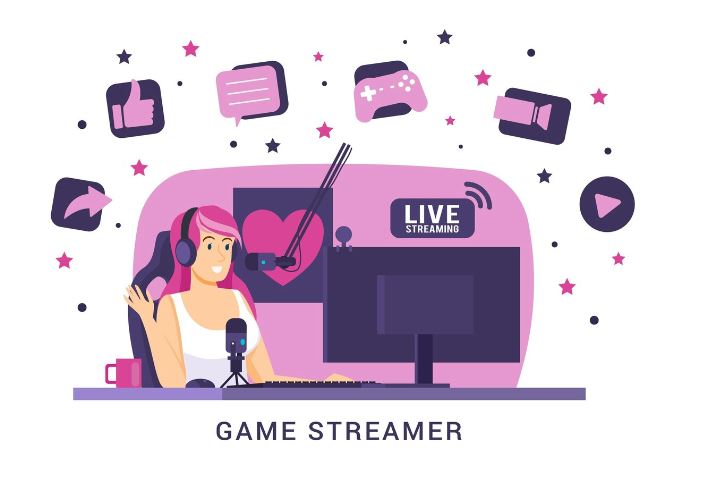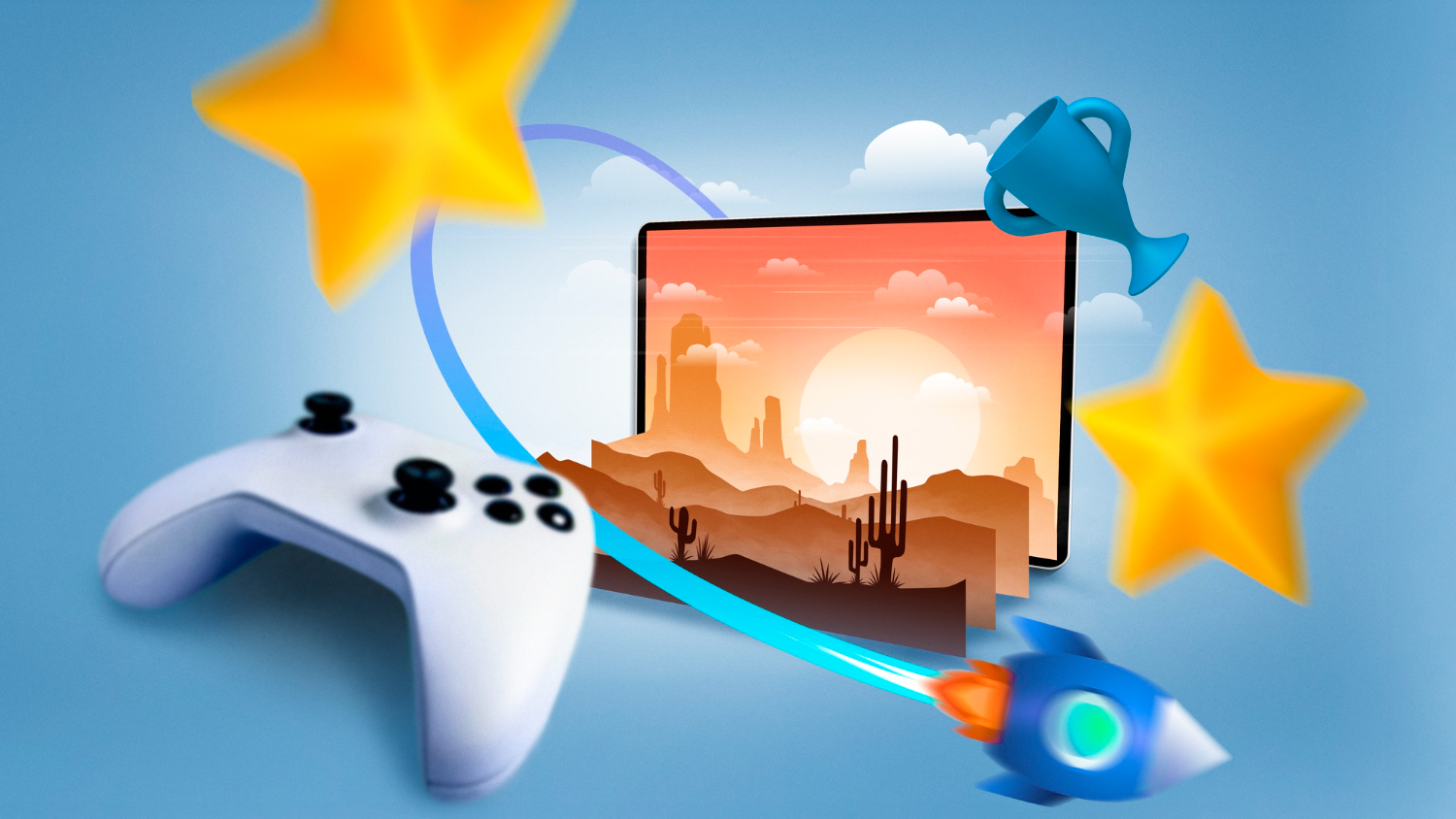Welcome to the colourful and ever-evolving universe of video video games! Whether or not you’re a seasoned gamer or a curious newcomer, the world of video video games presents countless pleasure, creativity, and alternatives for connection. On this complete information, we’ll dive into the fascinating elements of video gaming, from its wealthy historical past and various genres to the rise {of professional} esports and the newest developments. Let’s embark on this journey collectively!
1. A Transient Historical past of Video Video games
Video video games have come a good distance since their inception. Understanding their historical past offers us a larger appreciation for the technological developments and inventive improvements which have formed the trade.
The Early Days
The journey started within the Nineteen Fifties and Nineteen Sixties with easy computer-based video games like “Tennis for Two” and “Spacewar!” These early video games laid the groundwork for the gaming revolution to come back.
The Golden Age of Arcades
The late Nineteen Seventies and early Nineteen Eighties marked the golden age of arcades. Iconic video games like “Pac-Man,” “Donkey Kong,” and “Area Invaders” captivated gamers and established video video games as a cultural phenomenon.
The Rise of Residence Consoles
The introduction of residence consoles, such because the Atari 2600 and the Nintendo Leisure System (NES), introduced video video games into residing rooms worldwide. These techniques popularized basic video games like “Tremendous Mario Bros.” and “The Legend of Zelda.”
The Trendy Period
At the moment, video video games are a multi-billion-dollar trade with cutting-edge graphics, complicated narratives, and immersive experiences. Trendy consoles just like the PlayStation, Xbox, and Nintendo Swap, together with highly effective gaming PCs, supply unparalleled gaming experiences.
2. Exploring Video Recreation Genres
The variety of online game genres ensures there’s one thing for everybody. Let’s discover a number of the hottest genres and what makes them distinctive.
Motion
Motion video games are characterised by fast-paced gameplay that requires fast reflexes and hand-eye coordination. Examples embrace “Name of Obligation,” “Satan Might Cry,” and “Darkish Souls.”
Journey
Journey video games concentrate on storytelling and exploration. Gamers clear up puzzles and work together with characters to progress via the sport. Iconic titles embrace “The Legend of Zelda,” “Uncharted,” and “Tomb Raider.”
Position-Taking part in Video games (RPGs)
RPGs contain character improvement, story development, and strategic fight. Gamers typically management a personality or social gathering in a richly detailed world. Notable RPGs embrace “Remaining Fantasy,” “The Witcher,” and “Mass Impact.”
Simulation
Simulation video games replicate real-world actions, starting from constructing cities to managing farms. Standard simulation video games embrace “The Sims,” “SimCity,” and “Stardew Valley.”
Technique
Technique video games require gamers to plan and make choices to realize particular objectives. This style contains real-time technique (RTS) and turn-based technique video games. Examples are “StarCraft,” “Civilization,” and “XCOM.”
Sports activities
Sports activities video games simulate real-life sports activities like soccer, basketball, and racing. Properly-known sports activities video games embrace “FIFA,” “NBA 2K,” and “Gran Turismo.”
Esports and Aggressive Gaming
Esports has reworked gaming into a worldwide aggressive area. Video games like “League of Legends,” “Dota 2,” and “Counter-Strike: International Offensive” are on the forefront {of professional} gaming, attracting tens of millions of viewers and providing substantial prize swimming pools.
3. The Social Side of Gaming
Video video games have grow to be a social hub, connecting gamers from world wide. Right here’s how gaming fosters social interplay and group constructing.
Multiplayer Video games
Multiplayer video games permit gamers to group up or compete in opposition to one another on-line. Standard multiplayer video games embrace “Fortnite,” “Overwatch,” and “Minecraft.”
On-line Communities
On-line communities, boards, and social media platforms allow avid gamers to share experiences, ideas, and methods. Platforms like Discord and Reddit are well-liked for gaming discussions.
Streaming and Content material Creation
Streaming platforms like Twitch and YouTube have given rise to gaming influencers and content material creators. Players can share their gameplay, construct a following, and even earn a residing via subscriptions, donations, and sponsorships.
4. The Affect of Video Video games on Society
Video video games have a major impression on society, influencing tradition, schooling, and even psychological well being.
Cultural Affect
Video video games have grow to be a mainstream cultural phenomenon, influencing motion pictures, music, and trend. Characters like Mario and Pikachu are acknowledged worldwide.
Instructional Worth
Instructional video games and gamified studying instruments are utilized in faculties to boost studying experiences. Video games like “Minecraft: Schooling Version” and “Kahoot!” are examples of instructional gaming.
Psychological Well being and Properly-being
Whereas extreme gaming can result in unfavorable results, reasonable gaming can have optimistic impacts on psychological well being, resembling bettering cognitive expertise, offering stress aid, and fostering social connections.
5. The Way forward for Video Video games
The online game trade is continually evolving, with thrilling developments on the horizon.
Digital Actuality (VR) and Augmented Actuality (AR)
VR and AR applied sciences are creating extra immersive gaming experiences. Video games like “Beat Saber” and “Pokémon GO” showcase the potential of those applied sciences.
Cloud Gaming
Cloud gaming providers like Google Stadia, Xbox Cloud Gaming, and NVIDIA GeForce Now permit gamers to stream video games with out the necessity for high-end {hardware}, making gaming extra accessible.
AI and Machine Studying
AI and machine studying are enhancing recreation design, creating smarter NPCs, and personalizing gaming experiences. This expertise guarantees extra dynamic and fascinating video games sooner or later.
Conclusion
The world of video video games is huge and ever-changing, providing countless potentialities for leisure, creativity, and connection. Whether or not you are enjoying casually or diving into aggressive esports, there’s a recreation on the market for everybody. Embrace the journey, discover new genres, and benefit from the thrilling journey that video video games supply. Joyful gaming!
FAQ
What are the preferred online game genres?
Among the hottest online game genres embrace motion, journey, role-playing video games (RPGs), simulation, technique, and sports activities. Every style presents distinctive gameplay experiences catering to totally different preferences.
How can I get began with video gaming?
To get began with video gaming, select a platform (console, PC, or cellular), analysis well-liked video games in genres you’re inquisitive about, and begin enjoying. Becoming a member of on-line communities and watching gameplay movies also can allow you to get acquainted with gaming.
What are the advantages of enjoying video video games?
Taking part in video video games can enhance cognitive expertise, present stress aid, foster social connections, and improve problem-solving skills. Nevertheless, moderation is essential to avoiding unfavorable results related to extreme gaming.
How has esports impacted the gaming trade?
Esports has reworked gaming into an expert aggressive area, attracting tens of millions of viewers, providing substantial prize swimming pools, and creating profession alternatives for gamers, coaches, and content material creators.
What’s the way forward for video gaming?
The way forward for video gaming seems promising with developments in digital actuality (VR), augmented actuality (AR), cloud gaming, and synthetic intelligence (AI). These applied sciences are anticipated to create extra immersive, accessible, and personalised gaming experiences.














